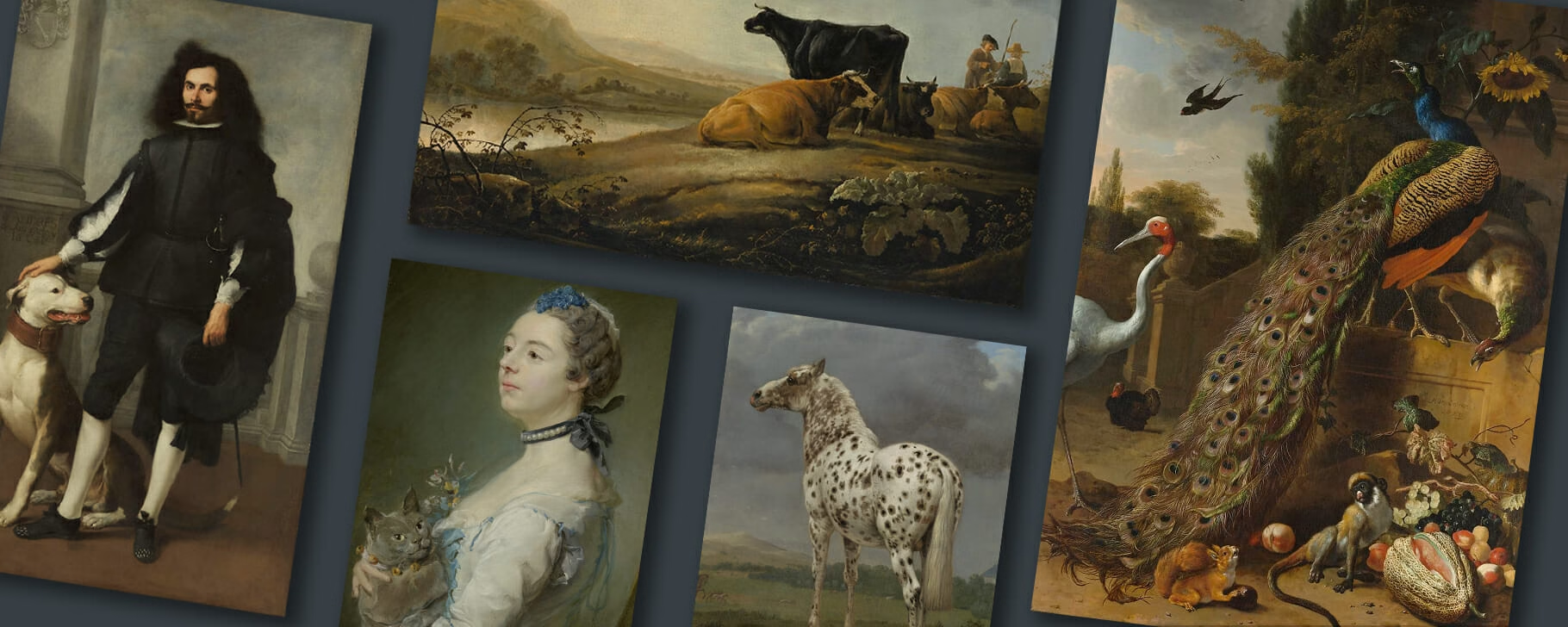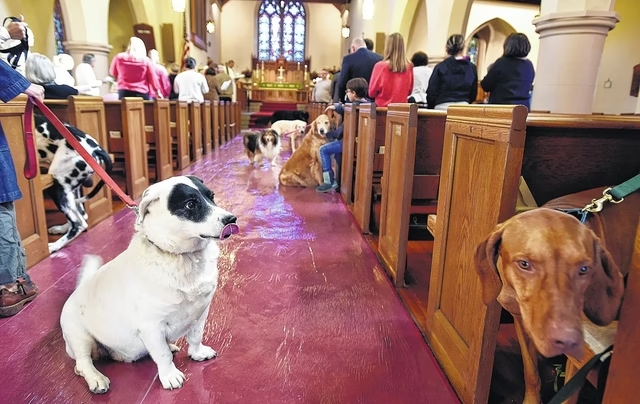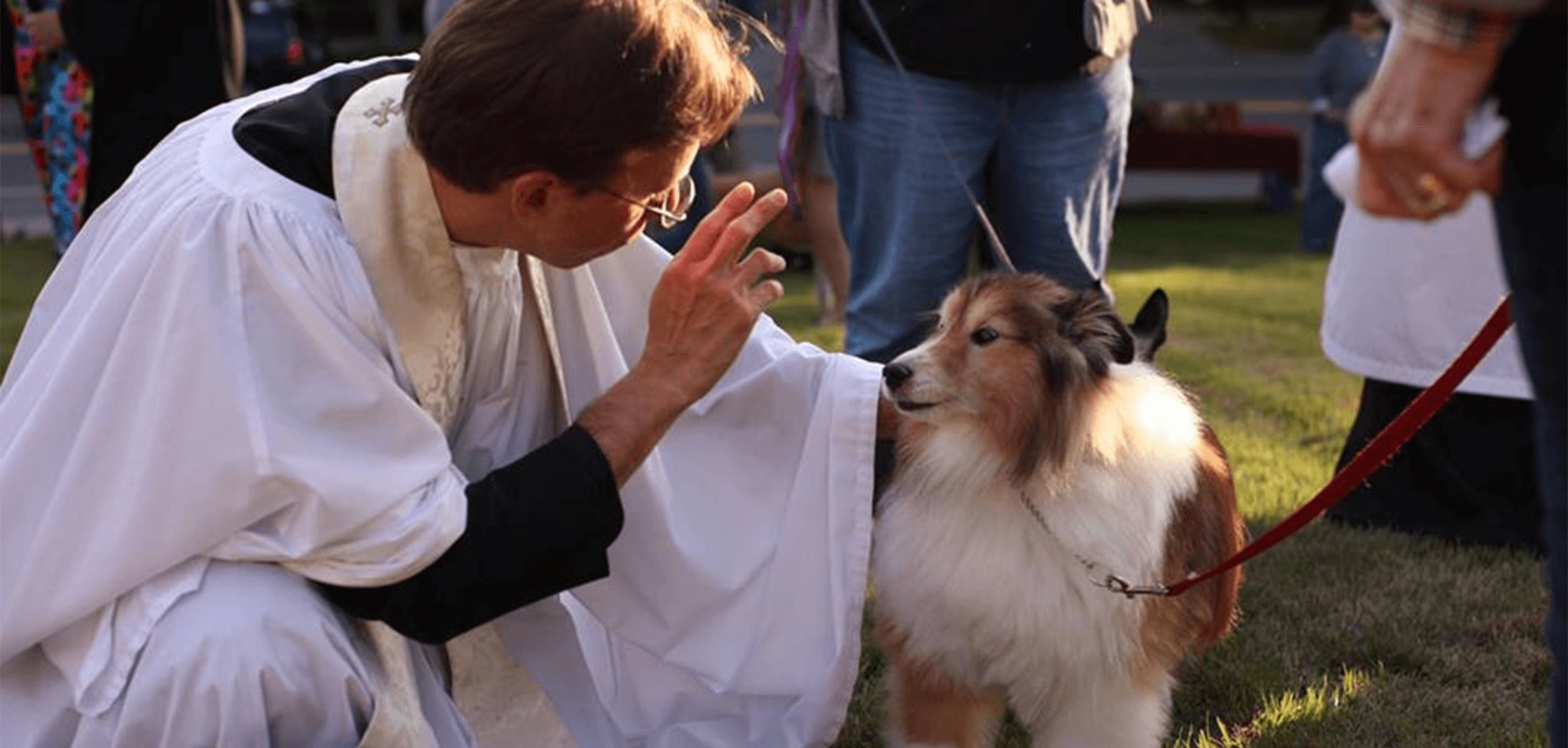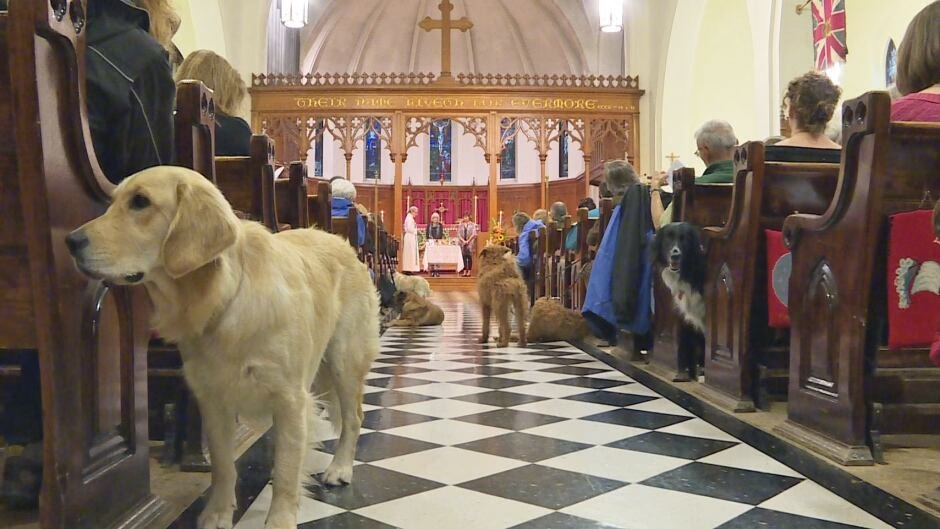- Dogs In Church: A Good Idea?
- Introduction
- Historical Perspective: Animals in Religious Contexts
- Modern Shift: The Emergence of Dogs in Church
- The Spiritual and Emotional Benefits of Dogs in Worship
- Inclusive Worship: Welcoming Dogs into Sacred Spaces
- Ethical Considerations: Animals in Religious Spaces
- Case Studies: Churches That Embrace Dogs
- The Role of Dogs in Church Events and Outreach
- Challenges and Controversies
- Conclusion
- FAQS
- Introduction
Dogs In Church: A Good Idea?
Introduction
In recent years, a fascinating trend has emerged in places of worship: the presence of dogs in church services. Traditionally, religious spaces have been seen as sacred and solemn, places where only humans engage in worship and prayer. However, the growing acceptance of dogs in church mark a shift toward more inclusive and emotionally supportive worship experiences. This change reflects broader cultural shifts, where the bond between humans and animals is increasingly recognized as an integral part of mental and spiritual well-being. dogs in church, often considered “man’s best friend,” have found a unique place in sacred spaces, offering companionship, comfort, and even spiritual benefits to those who attend services.
This article explores the role of dogs in church settings, examining their impact on worship, the ethical considerations, and the growing acceptance of animals as part of religious communities. By bridging the gap between animals and worship, churches are redefining the nature of spiritual inclusion.
Historical Perspective: Animals in Religious Contexts

Modern Shift: The Emergence of Dogs in Church
In recent years, there has been a notable shift in church culture, with more religious institutions embracing the idea of allowing dogs into worship spaces. This movement is largely driven by the recognition of the therapeutic and emotional benefits that animals, especially dogs in church, can offer. The growing trend reflects a broader societal change toward inclusivity, where churches are adapting to the needs of pet owners and their desire to worship with their loyal companions by their side.
The Spiritual and Emotional Benefits of Dogs in Worship
Dogs are known to provide emotional support, and their presence in church services can have a profound effect on attendees. Many find comfort and peace in having their pets by their side, especially during moments of prayer and reflection. The calming influence of a dog can reduce stress and anxiety, allowing worshippers to feel more connected to the spiritual experience. This bond between humans and animals enhances the sense of community within churches and deepens the emotional and spiritual connections of the congregation.
Inclusive Worship: Welcoming Dogs into Sacred Spaces

As churches become more inclusive, welcoming dogs in church into worship spaces is seen as a step toward embracing the diverse needs of congregants. For many pet owners, being able to bring their dogs to church enhances their sense of belonging and participation in religious life. Churches that embrace this shift often see a greater sense of community and connection among members. This inclusivity reflects a broader trend of adapting religious practices to support emotional and social needs, creating a more welcoming environment for all.
Ethical Considerations: Animals in Religious Spaces
While the presence of dogs in churches is becoming more common, it also raises ethical questions. Some may argue that animals should not be part of sacred spaces due to concerns about their behavior, potential distractions, or allergies. Others highlight the need to respect the sanctity of worship and consider whether pets may disturb the spiritual atmosphere. Balancing the inclusion of animals with respect for the traditions of worship requires careful consideration of both practical and ethical concerns in maintaining a peaceful and reverent space.
Case Studies: Churches That Embrace Dogs
Several churches around the world have taken the bold step of welcoming dogs into their worship services, and their experiences provide valuable insights into this trend. Some churches hold special “Blessing of the Animals” events, while others regularly encourage dogs in church to attend weekly services. These case studies reveal the positive impact dogs have on congregational life, fostering a deeper sense of community and emotional well-being. They also highlight the challenges and rewards of integrating animals into worship, providing a model for other churches to consider.
The Role of Dogs in Church Events and Outreach

Dogs play a meaningful role in various church events and outreach programs, often serving as symbols of comfort, healing, and companionship. Many churches host special services like “Blessing of the Animals” or organize therapy dog visits to provide support to congregants. These events not only bring joy to pet owners but also promote a sense of connection and support within the community. dogs in church are also increasingly featured in church-led social programs, such as pet therapy initiatives, where their presence helps to nurture emotional well-being and foster inclusivity.
Challenges and Controversies
While many churches are embracing the presence of dogs in worship, this trend is not without its challenges. Some congregants and religious leaders have raised concerns about the potential disruptions caused by animals, such as noise, allergies, or behavioral issues. Additionally, there are debates about whether dogs in church may undermine the sacredness of the worship experience or distract from the focus of prayer and reflection. Balancing tradition with innovation requires thoughtful consideration of how best to integrate animals into church settings while maintaining reverence and order.
Conclusion
The inclusion of dogs in church services represents a significant shift in religious practices, highlighting the growing recognition of the bond between humans and animals. dogs in church offer comfort, companionship, and emotional support, enriching the worship experience for many. While challenges remain in terms of balancing tradition and inclusivity, the benefits of allowing dogs in worship spaces are clear. As churches continue to evolve, it’s likely that the presence of pets will become more commonplace, contributing to a more inclusive and compassionate spiritual community.
You Can Also Read: Dog Urgent Care Near Me
FAQS
Can you take a dog in a church?
It’s appropriate to bring pets into a house of worship if the church accepts it, or there’s a special ceremony like a blessing of pets, or it’s a licensed and trained service animal, like a Seeing Eye dog. (“I need her! She keeps me calm!” isn’t a legitimate service claim unless doctors approve it.)
What does the phrase dog in the church mean?
This hilariously descriptive idiom is used to describe an unwanted guest. If you ever hear yourself described as a dog in church, it might be time to leave.
Are dogs allowed in Bible?
However, dogs are never included in lists of (ritually) unclean animals, and passages elsewhere indicate they did serve more positive roles. Job, for example, mentions in passing the dogs tending his flocks (30:1), and Isaiah refers to both sheep dogs and guard dogs
Does Islam allow dogs?
Thus, as stated in the hadith above, Islam allows the use of dogs if there are valid reasons such as hunting animals, herding livestock, protecting the crops (farming) and safety of the home or similar situations/reasons where security and effectiveness are concerned.
Do churches bless pets?
The answer is yes, the Church still does bless animals—in the Roman Rite and in the Eastern churches, like those of the Byzantine rite (which, by the way, has an even more highly developed set of blessings for animals in its ritual the Book of Needs).
